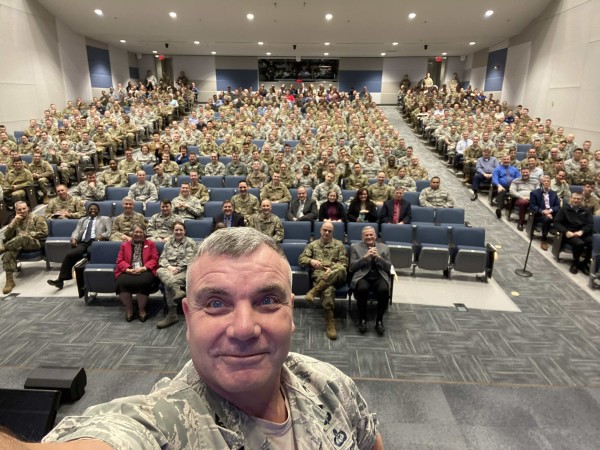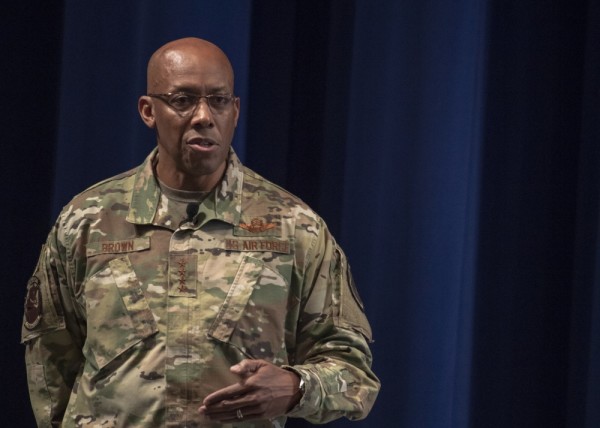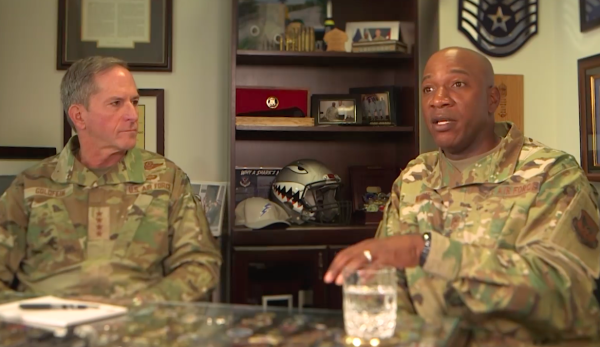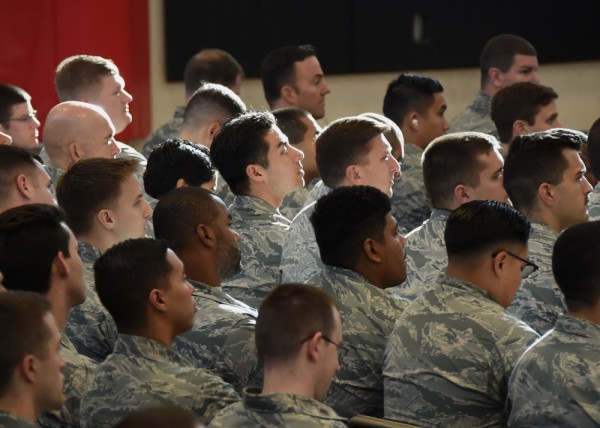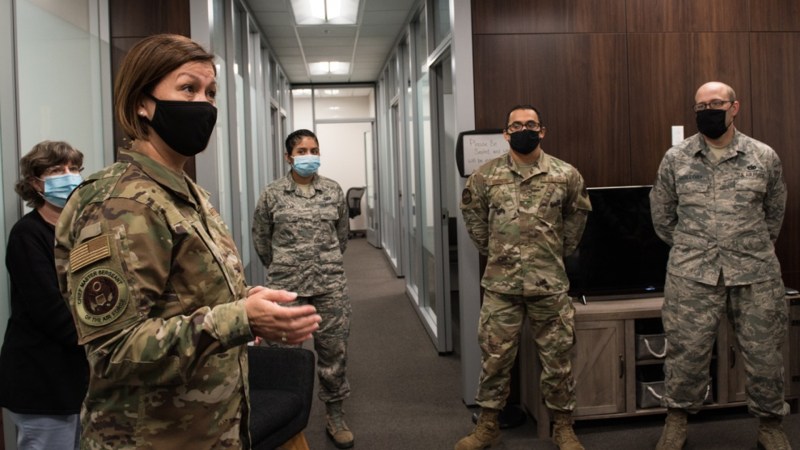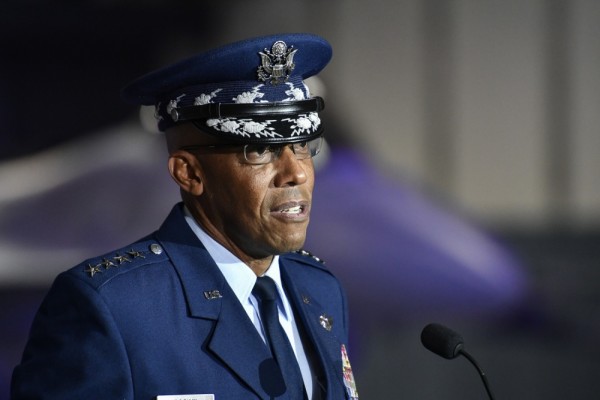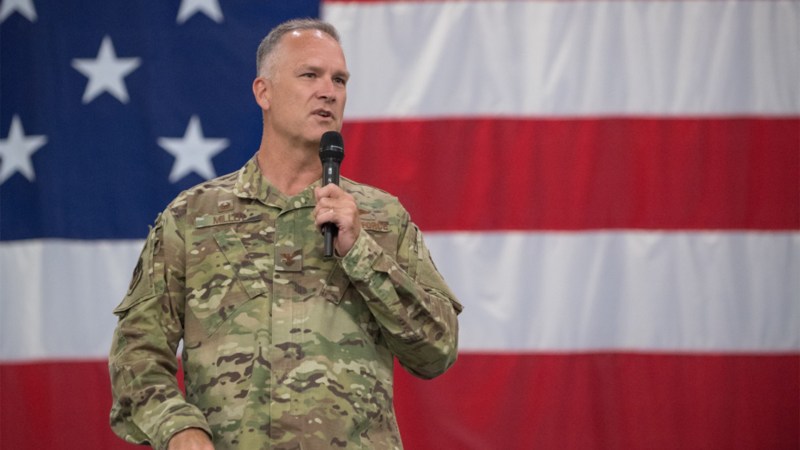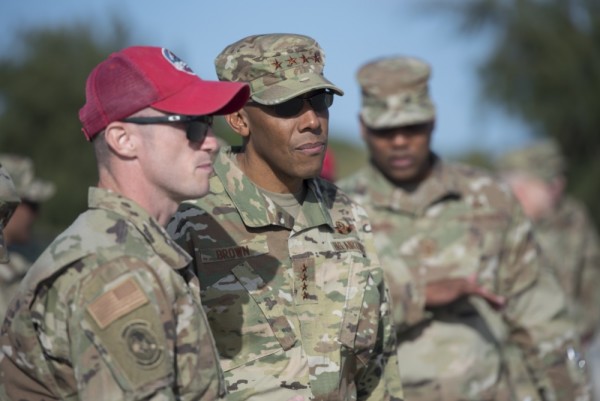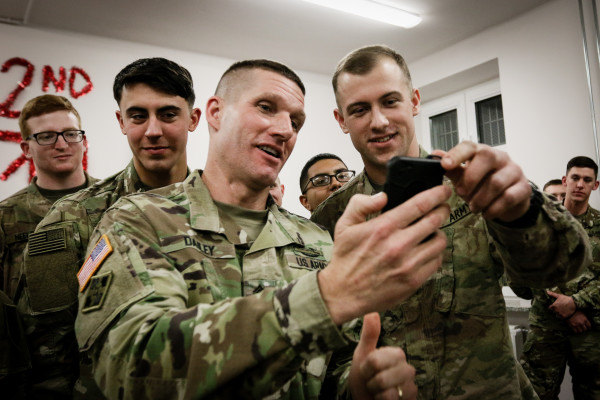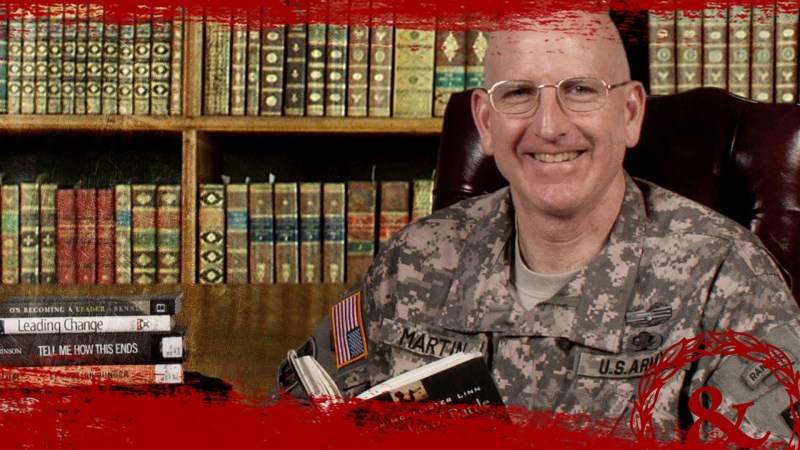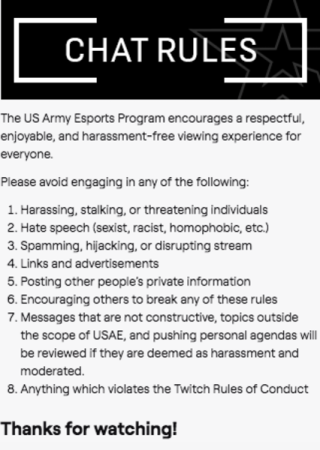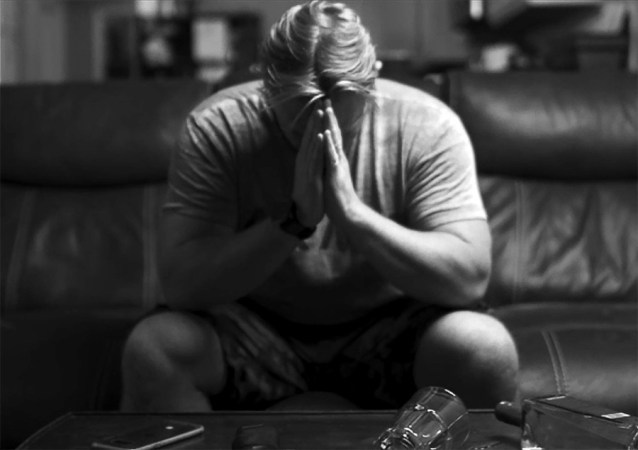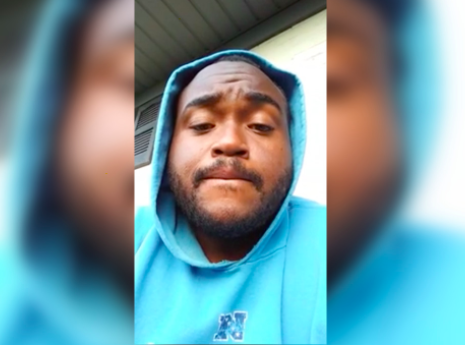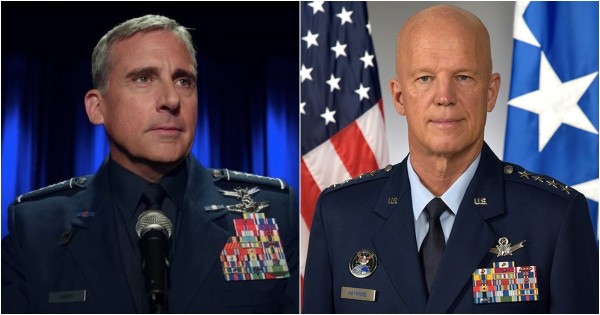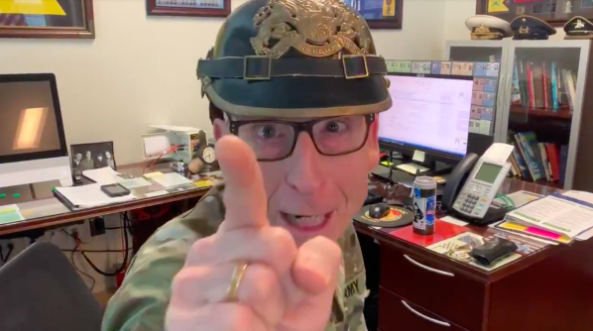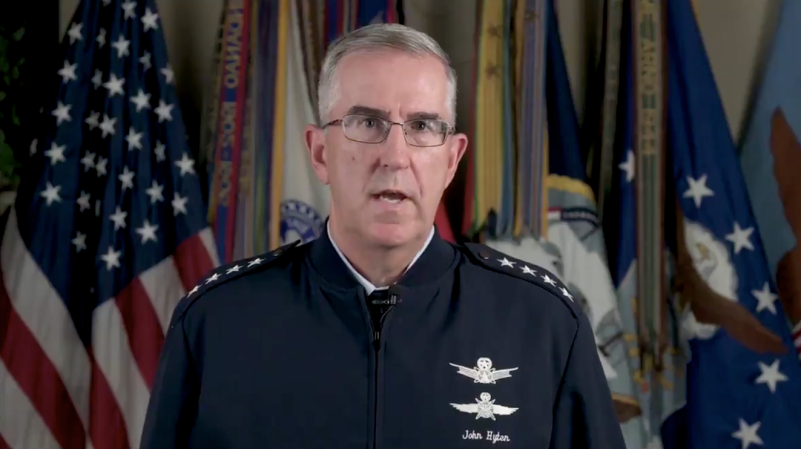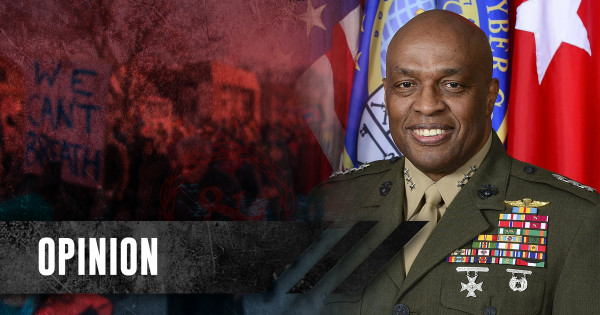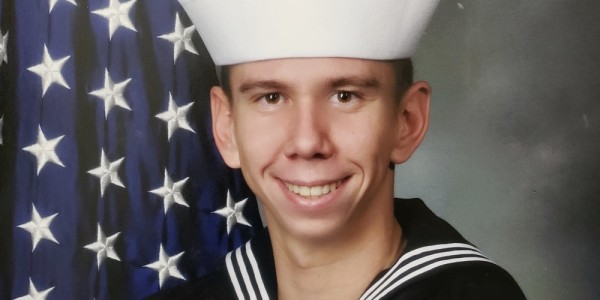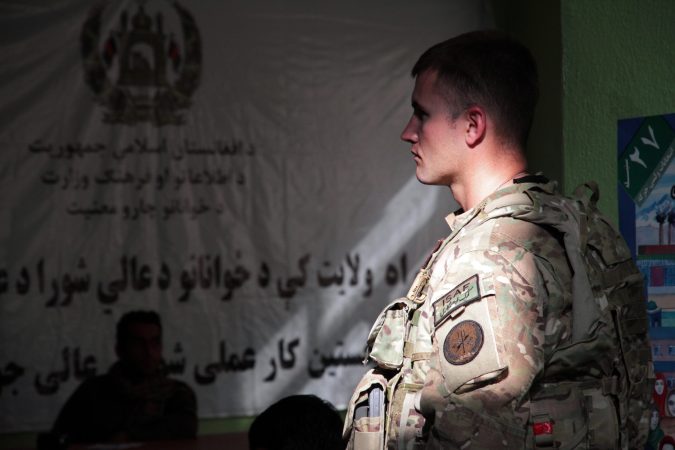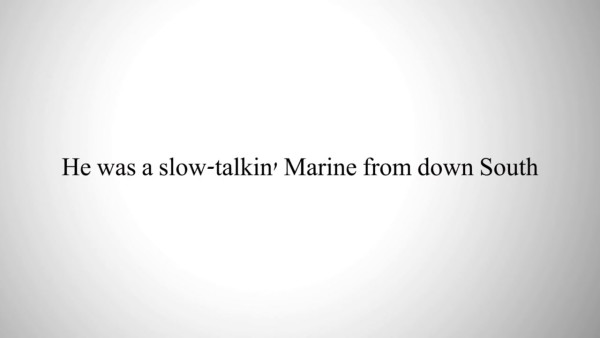Robert Swanson shouldn’t be alive right now.
At 57 years old, the former Air Force colonel has tried to kill himself twice: once with muscle relaxants and hypothermia, and the second time with anti-depressants and car engine fumes. After the first attempt, which saw Swanson near-frozen in the snow in the mountains of Utah, doctors told him that he probably would never walk again because they would have to remove his feet.
But not only did Swanson survive both his suicide attempts, he also kept his feet and his ability to walk. And then he learned to thrive and enjoy life in a way he never had before.
“No medical doctor can tell me, based on the two attempts and how I did it, how I survived,” Swanson told Task & Purpose.
Whatever the reason, Swanson believes it gave him a new purpose: to help other service members, veterans, and their families avoid what he experienced. And despite U.S. service members being bombarded with information about hotlines and support networks, the number of deaths from suicide in the ranks seems to only increase year after year.
The key, Swanson said, is giving a service member, veteran or family member a reason to call that number, a reason to ask for help, a reason to keep carrying on. As a speaker with the Fight For Each Other Project (F4EO), Swanson now visits bases across the country to share his story with service members.
The retired colonel spoke with Task & Purpose earlier this year.

Task & Purpose: Could you tell us your story of depression and recovery?
The bottom line is, I was a super hard-charging young guy: prior-enlisted, made staff sergeant, got into the Airman Education and Commissioning Program. I was that guy, there was nothing that was going to hold me back.
Once I got out of OCS, my first assignment was Special Forces, Airborne. I was super motivated, super-fit, got my master’s degree in meteorology, blew through that, a lot of math, a lot of physics, came out of it with a 3.97 GPA, then they rolled me into a Ph.D program.
Ph.Ds aren’t easy. Two years into that, stuff isn’t going right. The Ph.D program wasn’t working out, I wasn’t getting the conclusions I thought I was going to get. So you spend more time at school and then your kids are asking if dad’s coming home tonight.
I got to hear what a terrible dad I was, what a terrible husband I was. Everything that I wanted was going to hell. I wouldn’t get the stellar career I wanted to have.

My psychologist later asked me what about the Ph.D program makes people want to kill themselves. I said it’s not the program, it’s the people who get into it. They’re the perfectionists. Most of the pressure comes from you. I looked around and realized nothing was going to get better. I wasn’t going to get my Ph.D, my career was derailed, I was stuck with this woman for the rest of my life. I was a terrible father, terrible husband, terrible student.
We tend to convince ourselves that the world is better off without us. That was part of the madness, and I thought I was doing the world a favor by checking out.
So I took 30 Flexerils, a half bottle of whiskey, drove out into the mountains, walked into the snow and laid down to die. I woke up in the hospital with both my feet and hands frozen. I was basically told that I’d probably never walk again because they’d have to remove my feet.

To make a long story short, obviously there were a lot of physical issues to struggle through, but I kept my feet and toes and pretty much recovered from the frostbite.
I finished my Ph.D, then PCS’d. But from a mental health standpoint, where you’re talking about stress, I was in a new job, separated from my family, going through a divorce, and I had important projects I was working on. With my Ph.D, I was the only guy in the Air Force who could do what I was doing, so I never really got what I needed to come back from depression.

They started giving me different medications, I don’t remember which ones. When you mess with the brain, bad things can happen. Stress, pressure, and about 14 months later I tried again. I’m not sure if medications had anything to do with it, but the feeling of hopelessness, that I’m going to make the world a better place once I’m gone, all that stuff came back.
That time I took all the anti-depressants I had in the house, whiskey again, then laid in the bed of my pick-up truck in a one-car garage with the engine running. Interestingly enough, I woke up 12 hours later and the engine was still running. No one can explain why I survived that either.
When I woke up in the hospital the next time I was like “Send me back to work, I’m fine, and they said, “Not this time.”

If you’re with a mental health care provider and if you’re not connecting, it’s ok to change providers. I ended up going through two other providers, because I was me. I think up to that point, I was still fighting them. When I walked into the office of the third health care provider, he tossed a file at me saying there was nothing he could do for me.
I was like “your job is to fix me,” And he said “I’ve seen your IQ, you’re smarter than I am. You’re going to tell me everything I want to hear and I’m supposed to say ‘you’re fine.’ And you’ll go back to your miserable world sitting in the shower bawling your eyes out because you don’t have the balls to face the day.
“Or, you can give me a shot and I can show you how to not only live through the day, but look forward to it.” He called me on my bullshit.
What would you say was your bullshit?
My bullshit was that I thought I was smarter than everyone else. Nothing could change me, I didn’t need help, I didn’t need to let my guard down, I knew what I needed to do. That arrogance almost cost me my life twice. And some people won’t understand, like “seriously you’re going to kill yourself over school?”
He made it clear that: 1) Life as I knew it was coming to an end (my Air Force career) and 2) That I could have a much better life if I truly wanted it. We spent a lot of time thinking about how things would be, writing it down, and then thinking ‘it’s not as bad as I thought.’ We were changing my mindset, thinking ‘what’s the worst that could happen?’
His work was based on David Burns, who has a book called Feeling Good and Ten Days to Self-Esteem. Basically he talks about distorted thinking and ways to untwist your thinking. When you’re in this place, you view the world in black-and-white, all good and all bad. Anything good, you minimize it. Anything bad overshadows everything.

How long did it take to recover?
The recovery was fairly rapid. After that self-esteem book, a series of light bulbs went off. As soon as we start breaking habits, stuff starts changing. I started analyzing things, realizing “this is one of those times I’m not thinking straight,” and then shifting.
I was back to work probably within three months, pretty good by about six months. Then I had some significant hurdles I had imposed on myself, like I had lost my security clearance. If you seek help in the military they won’t pull your clearance in general, but they’re a little less forgiving when you try to kill yourself.
It took me two years to get my clearance back. Then it took me another year to get my top secret clearance back. It wasn’t easy. One of the things that helped was working with a psychologist. They ask questions and cross-reference to show the depression is in remission.
I don’t bring a lot of proselytizing into my work, but I believe the Good Lord kept me around for a reason. There’s something I can contribute. Back around 2012 they had sequestration, kicking people out, lives changing. We want to remove the stigma of asking for help, but nobody talks about it. And here I am a colonel, and if I can say it can happen to anybody, that’s a powerful message for a lot of junior people.

If you fall down, you get a cast and you go back to work and nobody thinks anything about it. My brain was broken. I needed a cast, I needed some therapy and then sent back to work.
With PowerPoints, role playing exercises and the like, it’s not real. When you have real people relating real stories, then there are aspects people can relate to. A young lady named Aubrey Pabon headed [F4EO] up. Hawaii is unique in that we have all five services out here, so we put together speakers from each service to speak at each base.
One woman talked about her husband, a hard-charging Marine who she saw shoot himself in the head. Then their son wanted to hang himself, and she found him hanging from a ceiling fan in the living room.
That’s the real impact. You leave a gaping hole in people’s lives. You leave guilt. This is the impact you have: a brother who lost a son, a daughter who lost a sister.
I was that guy. I came back. I’m a colonel with a Ph.D. I live in Hawaii, I’ve run 30 marathons. I’ve got a 1965 Corvette Stingray convertible in my garage. Look at all the things I’ve been able to do since I stuck around.
Now every time I speak to a military audience, local mental health sees a spike in new referrals.

I’ve heard that many airmen list toxic leadership as a big factor behind their deteriorating mental health. What do you think of that?
The first time [F4EO] formed, we had parking spaces reserved for wing commanders, chiefs, etc., and the parking spaces were empty [at F4EO events]. It wasn’t important enough for leadership to go and represent. I remember my dad telling me ‘don’t smoke’ with a cigarette hanging out of his mouth.
People complain about multiple things with leaders. One is lack of support, one is a problem in the military when you’re overworked and leaders say get it done anyway. Also sometimes with older leaders, there’s an attitude of ‘just suck it up.’
When airmen talk to me about their leaders, a lot of times I’m hesitant to buy into the airman’s perception of leadership, because I just don’t know. But one airman gave me specific examples of someone who discouraged people from seeking help.
Did they have recourse? I’m like ‘yes, absolutely.’ The best defense is to document specific instances. Write down names, dates, places, times, build a record. We do have the Air Force Inspector General.
Usually the hardest part is if you have a toxic leader, you can have issues with retribution. But the IG is an investigative body, they have their own chain of command.
I told them: ‘document it, write it down, compare notes.’ Because I’ve seen commanders relieved because of toxic environments. It takes people with guts to stand up to one, but if you’re having this issue, then other people are too.

What’s the difference between a leader that fosters a good mental health dialogue and a leader who doesn’t?
I think I was a better commander and leader because of my experience, and that magic word ‘empathy.’ Even if a leader can’t imagine themselves in that space, they have to be cognizant and aware that it does exist and it is real. That’s where empathy and caring about your people comes into play.
When I told my story, my old boss asked me afterwards, ‘What could I have done to stop you from doing that that day?’
Nobody knew. I didn’t have the signs, didn’t have suicidal ideations. I could hide my depression better than an alcoholic could hide a bottle of vodka. I was the funniest guy in the shop, I loved telling jokes. Sometimes the people masking their pain with humor are the ones hurting the worst.
But he knew I was getting a divorce, estranged from my kids and under a lot of pressure. That’s where knowing your people, and being a commander where people know what’s going on, and you have people who care, that’s the kind of command climate that needs to be there.
It’s a command climate of caring and knowing your airman and knowing they’re off regardless of whether they have the textbook signs. Because really you want to know the signs before you get to that point.
Sometimes commanders also need to communicate clearly that it’s ok to get help. Even better, it would be great for leaders, senior NCOs to be a little vulnerable, that they’ve got mental health struggles. It can go a long way.
Leaders try to say our shit doesn’t stink, but we’re human just like everyone else.
What’s it like to talk about this all the time?
It’s tough. Every time I get up and talk, I have to relive that experience. But I also know the person who did all that died on the side of a mountain. I’m a different person.
I’ll ask the audience sometimes: ‘does anyone out there think I’m a weak person?’ I’ve never seen a hand go up, ever. That clicks something, that seeking help is a sign of strength. It’s a huge sign of strength, not weakness.
What’s something that you think should be in the public conversation about suicide that isn’t there already?
That’s hard. One problem is we can call this or that number or call the chaplain, without realizing the person in that dark space doesn’t want help. We’ve got to give them a reason to call that number.
My basic theme: one, it can happen to anybody; two, it always gets better; and three, there are tools out there that help, that work.
The other thing is, you’re not going to be put in a situation where you just survive. You can get to a point where you can thrive, where life throws shit at you and life still happens. Life still kicks me in the balls but now I can get through it. My wife and I, we fight sometimes. And the last time I was in that situation I tried to kill myself, but now I don’t, and that’s a plus.

I also think our outreach efforts shouldn’t be focused on service members, but on the entire community. Families and dependents must also have resources.
We’re not going to be able to confront this until we’re comfortable being uncomfortable. We have to be able to confront people, say ‘you’re not acting 100%.’ And if they say they’re fine, push a little harder, talk about yourself, give them an opening.
Any special message in regards to novel coronavirus (COVID-19)?
Only that the bad things are temporary and that they always get better. A missed paycheck can seem like the end of the world, but it probably isn’t the first, nor the last.
The other message would be that rather than practicing social distancing, we should be practicing physical distancing and social closeness. Check on your folks, reach out when feeling overwhelmed. Just as we we are a mask to protect others more so than for ourselves, reach out for others and we may find ourselves the recipients of the benefits of social interaction.
If you’re thinking about suicide, are worried about a friend or loved one, or would like emotional support, the Lifeline network is available 24/7 across the United States. Call the National Suicide Prevention Lifeline at 800-273-TALK (800-273-8255) to reach a trained counselor. Use that same number and press “1” to reach the Veterans Crisis Line.

